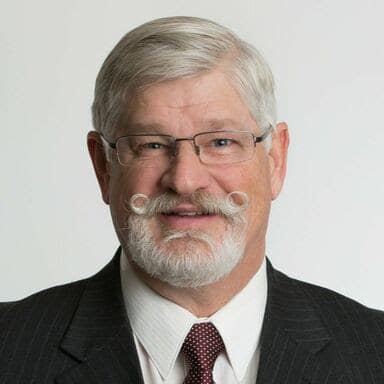Many church members do not understand how their pastors work, how their pastors should be paid, or why their pastors might need time away from the ministry. The result is that churches often expect more than pastors can humanly deliver. Both the pastor and the church should discuss their expectations frankly. Well-written policies can be part of the solution.
Granted, some pastors are lazy. They need to learn that ministry is not a forty-hour-a-week job. These pastors should look at the business leaders in their communities. Corporate managers rarely work less than sixty hours per week. That number is even higher for small business owners. Church members have a right to expect their pastors to work as hard as they themselves do.
Ministry, however, is not like working on an assembly line or in an office. A pastor’s job falls into three main activities. One is his study, including but not limited to his sermon preparation. Another is the time that he spends administering the work of the church. The third component is the time that he spends with people, whether at hospitals and care facilities, in their homes, or just over coffee. Each of these activities could easily fill a work week in most churches, and many pastors struggle to hold them in balance.
Compounding this pressure is the fact that every pastor knows about multiple organizational time bombs that are ticking away, any one of which could wreck the ministry. Some of them involve tense relationships, some center on differences of priority, some take the form of severe counseling problems, and at least a few involve genuine moral failures. Usually, a pastor knows more about these threats than anyone else in the church; he alone carries the burden of them all.
As if these pressures weren’t enough, every pastor comes under attack at some point in his ministry. He discovers that his sheep can bite, and some of them do. Some men can shrug off personal attacks, but for others, dealing with personal opposition can become overwhelming.
In short, pastoral ministry is joyful, but it is also stressful. It always has been. Even the apostle Paul felt daily pressures that arise from the “care of the churches” (2 Cor 11:24).
To be effective, then, a pastor needs to learn to handle stress. One of the most important ways to do this is occasionally to take time away from the work. Even Jesus recognized the need to set aside times when He and His disciples would leave the work for the sake of resting (Mark 6:31). Jesus also took time out from active ministry for solitude and prayer (Luke 5:16).
If the Master needed times like that, then why would His servants think that they did not? On the contrary, time away from active ministry is one of the most important tools for keeping one’s ministry fresh and effective. These times are important for physical renewal, for building family relationships, for allowing the mind to refocus, and for addressing personal spiritual needs. They are simply indispensable.
A word of caution needs to be offered. Not all time away from a ministry’s location is time away from that ministry. A pastor’s work will sometimes pull him away from his own neighborhood. He is responsible to attend ordination and recognition councils. If his church is affiliated with some larger association or fellowship, then its annual meetings are not time off for him. His presence is necessary to ensure that his church’s voice is heard. Furthermore, ministers are responsible to continue their education as long as they are active, so some weeks out of every year will be spent on conferences and courses. If he is a respected Christian leader, a pastor may well be asked to conduct conferences and classes. All these activities take the minister out of his own community, but none of them helps him to deal with the stress of ministry. Indeed, they add to that stress.
Furthermore, pastors simply cannot take “staycations” in which they have time off while remaining quietly at home. As long as a pastor stays in his own community, he is working. The only way for him to get the rest he needs is to leave (preferably with his family) for some days or weeks.
Generally, it will be weeks. Pastoral ministry is so intense that most pastors cannot begin to lay its burdens aside, even temporarily, within a few days. Many will only begin to relax during the second week of their vacation. An extended time away is genuinely necessary.
How much vacation should a pastor receive? Even ordinary laborers rarely get less than two weeks. That figure can serve as a minimal starting point for pastors, but it should not be the ending point. Increases in vacation time are just as important as increases in pay—and they cost the church less. After two or three years, a pastor should receive at least three weeks of vacation. If he has been in ministry for ten years or more, he should have a month. More senior ministers should rightly be entitled to even more time away.
Incidentally, a church should calculate its pastor’s seniority according to his time in ministry, not his time in a particular, individual work. If a ministry calls a man who already has experience, then he brings his experience with him into that ministry. The whole ministry benefits. A church should count that experience when it decides what benefits it will offer its pastor. For example, if he has pastored one church for seven years and another for eight, then he has fifteen years of seniority in ministry. His present ministry should reckon upon this total number when calculating his compensation and his vacation time.
Part of a church’s responsibility is to make sure that its pastor has adequate resources to take a decent vacation. Travel and lodging can be expensive, and if his compensation is low, then a pastor may not be able to save much toward his time away. The church itself can help to correct this situation by offering the minister a financial bonus specifically for his vacation. If this bonus is a budgeted item, it can become a part of the church’s regular financial planning.
Spending time away from the ministry is neither laziness nor luxury. To think so is to make oneself more spiritual than Jesus. Pastors should plan time away for the sake of their ministries and of their own spiritual wellbeing. Furthermore, churches should take the initiative by insisting that their pastors take vacation time and by providing adequate resources for it. Doing this is good, not only because it is right, but it is also the best thing for the ministry itself.
This essay first appeared here and is used by permission.




